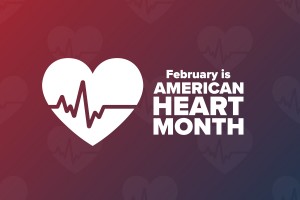In the winter of 2021, a congressional report exposing four major baby food manufacturers for allowing unsettling concentrations of heavy metals in their products was made public. The Subcommittee on Economic and Consumer Policy found these companies’ infant and toddler food to contain 91 times the maximum arsenic concentration, 69 times the safe cadmium limit, 177 times the maximum lead concentration, and 5 times the safe mercury limit. To comprehend the severity of the problem, it is important to note that the maximum allowable level for arsenic is 10 ppb, for cadmium and lead, 5 ppb, and for mercury, 2 ppb.
Shortly after the investigation results became available, the Food and Drug Administration devised a strategy meant to minimize the content of toxic metals in baby food, known as the Closer to Zero plan. However, it is unnecessarily slow and lengthy and has numerous shortcomings, which prompted Colorado’s Attorney General, Phil Weiser, to join a coalition of 23 other attorney generals. They petitioned the FDA and urged the agency to take more aggressive measures regarding the dangerous level of heavy metals in most baby food on the market.
“The FDA can and should act quickly to stop manufacturers that have allowed toxic heavy metals into the food we give our children when they are at their most vulnerable,” Weiser said.
The agency has indeed failed to properly regulate toxic contaminants in baby food. It has set a maximum allowable limit only for arsenic in one type of product – infant rice cereal. Even so, the limit, which is 100 ppb, is considered too high for infants and toddlers by medical specialists and health organizations. Perhaps the most alarming concerning the FDA’s Closer to Zero plan is that it would be completed in 2024, which is unacceptable in the context where children need clean and safe food immediately. “They found evidence that we have arsenic, lead, and other dangerous metals in baby food. The FDA has the authority to oversee baby food and make sure it’s safe. We need them to use that authority,” said Weiser.
Infants and toddlers are significantly more vulnerable to the health impact of toxic exposure, as ingesting food with heavy metals during their first years of life can greatly increase their risk of autism spectrum disorder. Children who have been fed tainted baby food are also more likely to struggle with other neurodevelopmental disorders and problems, including a lower IQ, behavioral abnormalities, cognitive damage, ADHD, learning disabilities, and speech impairment. Today, 1 in 44 children develop autism in the United States. Moreover, the incidence of the disorder has increased to 2% from 2007 to 2012.
Baby Formula Manufacturers Facing a Lawsuit Following the Death of a Colorado Infant
In February 2022, the Abbott facility in Illinois, which manufactured the popular baby formula Similac, was closed due to the presence of bacteria. This sparked a thorough investigation by the Food and Drug Administration and Centers for Disease Control and Prevention. Unfortunately, soon after the plant was shut down, a nationwide shortage of baby formula occurred, causing over 40% of the baby formula supplies nationwide to be out of stock. Still, by June 28, approximately 378 million bottles were secured. While the situation has improved considerably, parents continue to struggle, as the amount of baby formula in stock dropped below 60% in July.
Around the same time, Octavia Patton-Ashley, whose infant son died in Colorado, filed a lawsuit against Abbott Laboratories and Mead Johnson, which manufactures another well-known baby formula — Enfamil. She alleges that her baby’s necrotizing enterocolitis, a highly fatal condition in which part of the intestine dies, resulted from the medical staff feeding him Similac and Enfamil formula. The lawsuit argues that baby formula is inherently dangerous for premature babies and should come with clear warnings, which the manufacturers failed to provide. Born in early February 2021 at Children’s Hospital Colorado at 34 weeks, the infant passed away roughly four months later. The lawsuit was filed in the U.S. District Court for the District of Colorado.
The plaintiff also claims that baby formula manufacturers withheld information about the risks from doctors, preventing them from making good recommendations on how it should be used. There are multiple studies that support the connection between necrotizing enterocolitis and baby formula, such as one from the Journal of Pediatrics. It found that while only 3% of the children in the human milk group developed the condition, a whopping 21% in the baby formula group came to struggle with it. The issue of heavy metals in baby food, as well as in baby formula, is acute and ongoing. Minimizing the content of toxic contaminants in these products should be the FDA’s main priority at the moment.
 Jonathan Sharp is Chief Financial Officer at Environmental Litigation Group, P.C. The law firm, which specializes in toxic exposure, is headquartered in Birmingham, Alabama. Some of the responsibilities of Jonathan Sharp are financial analysis and case evaluation. By virtue of his vast experience in assessing and reviewing toxic exposure cases, he has acquired valuable knowledge about the impact of heavy metals on children’s health and is always up to date with the latest news on this subject.
Jonathan Sharp is Chief Financial Officer at Environmental Litigation Group, P.C. The law firm, which specializes in toxic exposure, is headquartered in Birmingham, Alabama. Some of the responsibilities of Jonathan Sharp are financial analysis and case evaluation. By virtue of his vast experience in assessing and reviewing toxic exposure cases, he has acquired valuable knowledge about the impact of heavy metals on children’s health and is always up to date with the latest news on this subject.


